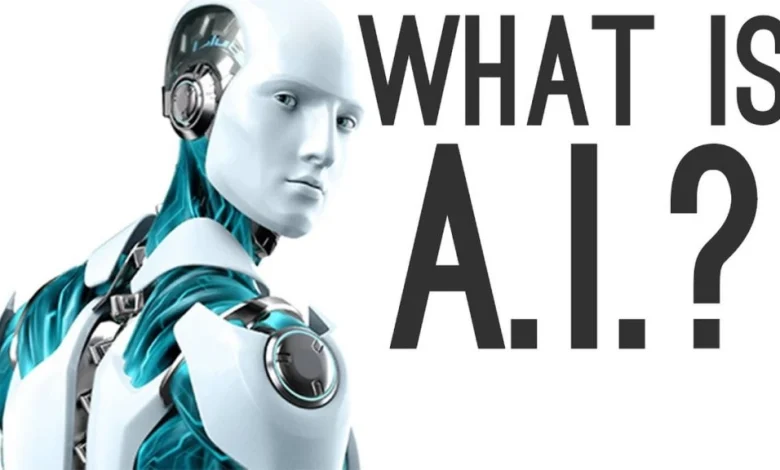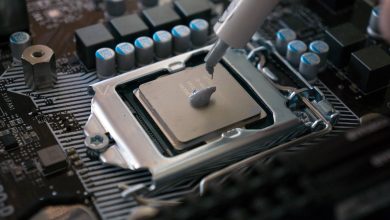
What is Artificial Intelligence (AI)?
Artificial Intelligence, commonly known as AI, is a field of computer science focused on creating systems that can perform tasks that would normally require human intelligence. This includes recognizing speech, making decisions, understanding language, and identifying images. AI has made rapid progress over recent years, impacting almost every industry.
AI is used in smartphones, customer service, healthcare, and even self-driving cars. As AI systems continue to improve, they promise to transform our daily lives by making technology smarter and more efficient. Let’s look at what AI is, how it works, and the exciting possibilities it brings.
How Does AI Work?
AI systems work by processing vast amounts of data, learning from patterns, and making predictions or decisions based on this data. There are two main types of AI:
- Narrow AI (Weak AI) – Narrow AI is designed to perform a specific task, such as identifying objects in images, recommending movies, or translating languages. This type of AI powers most of the systems we interact with today, like voice assistants (Siri, Alexa) and recommendation engines (Netflix, Amazon).
- General AI (Strong AI) – General AI is a theoretical form of AI that would have human-like cognitive abilities. This type of AI could perform any intellectual task a human can do, but it doesn’t yet exist. Creating general AI is challenging and remains a long-term goal for researchers.
AI achieves its tasks using methods like machine learning and deep learning. Machine learning involves feeding data into algorithms, which then improve at tasks through experience. Deep learning, a subset of machine learning, uses artificial neural networks to simulate the human brain’s structure and function, making it ideal for complex tasks like image and speech recognition.

Key Applications of AI
AI has already found applications in numerous industries, improving processes and creating innovative solutions. Here are some key areas where AI is making an impact:
- Healthcare – AI is revolutionizing healthcare by analyzing medical data, assisting in diagnoses, and predicting patient outcomes. AI-driven tools help doctors detect diseases like cancer earlier, improve patient care, and even perform surgeries with robotic assistance.
- Finance – In the finance industry, AI is used for fraud detection, credit scoring, and algorithmic trading. AI-powered systems can analyze vast amounts of financial data, recognize suspicious activities, and help banks make better investment decisions.
- Retail – Retailers use AI to provide personalized recommendations, optimize supply chains, and enhance customer experiences. By analyzing purchase histories and browsing behaviors, AI systems can suggest products tailored to each customer’s interests, improving sales and satisfaction.
- Transportation – AI plays a key role in autonomous vehicles, allowing cars to navigate, detect obstacles, and make real-time decisions. AI is also used in logistics to optimize routes, reduce fuel consumption, and enhance safety.
- Entertainment – AI-powered recommendation algorithms on platforms like Netflix, YouTube, and Spotify help users discover content based on their preferences. This keeps users engaged and improves their overall experience.
- Manufacturing – In factories, AI systems control robots, detect quality issues, and predict equipment failures. By analyzing data from sensors, AI helps manufacturers automate tasks, reduce downtime, and increase efficiency.
- Education – AI-powered educational tools provide personalized learning experiences, adapt to students’ needs, and help teachers track progress. For instance, AI tutoring systems assist students with complex subjects and provide instant feedback.
Benefits of AI
AI offers several significant benefits that make it valuable in a wide range of applications:
- Efficiency – AI automates repetitive tasks, freeing up time and resources for more critical activities. This improves productivity across industries.
- Accuracy – AI systems can analyze large amounts of data with precision, reducing human error and enhancing accuracy in fields like healthcare, finance, and manufacturing.
- Personalization – AI-powered recommendations and personalized content provide users with tailored experiences, leading to higher satisfaction and engagement.
- Cost Savings – By optimizing processes, AI helps reduce operational costs, particularly in areas like customer service, where AI chatbots handle common inquiries.
- Innovation – AI enables the development of new products, services, and solutions that weren’t possible before, driving innovation in industries from tech to healthcare.
- Real-Time Decision Making – In fields like autonomous driving, finance, and security, AI enables quick and informed decision-making, which can be crucial for safety and efficiency.
Types of AI Systems
AI can be categorized into several types based on its capabilities and complexity:
- Reactive Machines – These AI systems are limited to specific tasks and do not store memories or past experiences. An example is IBM’s Deep Blue, which defeated a world chess champion by analyzing possible moves but did not learn or adapt.
- Limited Memory – This type of AI stores past experiences to make better predictions and decisions. Self-driving cars use limited memory AI to interpret road conditions based on previous data.
- Theory of Mind – This type of AI, still theoretical, would understand emotions, beliefs, and social interactions, allowing it to work alongside humans more effectively.
- Self-Aware AI – The most advanced form of AI, self-aware AI would have consciousness similar to humans. While this remains purely speculative, it represents the ultimate goal in AI research.

Challenges of AI
Despite its advantages, AI also faces significant challenges that slow its progress:
- Data Privacy – AI requires vast amounts of data, raising concerns about user privacy and data protection. Companies and governments must ensure ethical data usage and adhere to privacy regulations.
- Bias – AI systems can inherit biases present in the data used for training. This can lead to unfair or discriminatory outcomes, especially in fields like hiring and law enforcement.
- Job Displacement – AI’s automation of tasks raises concerns about job loss. While AI creates new opportunities, certain jobs may disappear, leading to workforce shifts and the need for new skills.
- Complexity – Developing advanced AI systems requires significant technical knowledge, computing power, and resources. This complexity limits accessibility, making it challenging for smaller companies to adopt AI.
- Ethics and Accountability – As AI systems make decisions, there are questions about responsibility and accountability. It’s essential to ensure that AI technologies are used ethically and transparently.
AI vs. Human Intelligence
AI can perform certain tasks faster and more accurately than humans, but it still lacks creativity, empathy, and common sense. While AI is excellent at analyzing data, it cannot understand emotions or complex social interactions like humans can. Human intelligence remains vital for creativity, decision-making, and handling unpredictable situations.
AI works well for tasks that involve large datasets or require repetitive actions, while human intelligence is necessary for strategic thinking, empathy, and ethical considerations. In many fields, humans and AI work together to complement each other’s strengths.
Future of AI
AI’s future holds exciting possibilities. Here are some areas to watch:
- AI-Powered Healthcare – In the future, AI may assist doctors in diagnosing rare diseases, predicting epidemics, and personalizing treatments for patients. AI-powered devices could monitor patient health in real-time, potentially saving lives.
- Improved Natural Language Processing (NLP) – As NLP advances, AI will better understand and generate human language. This will improve virtual assistants, making them more conversational and helpful in tasks like customer support.
- Smart Homes and Cities – AI could manage energy use, traffic, and public safety in smart cities. In homes, AI systems may control lighting, temperature, and appliances based on personal preferences, creating more sustainable living environments.
- Collaborative Robots (Cobots) – Cobots are robots that work alongside humans, assisting with tasks and enhancing productivity. Industries like manufacturing and healthcare may use cobots for precise, repetitive tasks, allowing humans to focus on more complex work.
- Ethical AI Development – As AI progresses, ethical considerations will become more critical. Researchers and companies will focus on developing AI systems that are fair, transparent, and aligned with human values.
- Enhanced Security and Privacy – Future AI systems may incorporate better security protocols to protect user data. AI-driven cybersecurity tools will identify and respond to threats more effectively, ensuring safer digital experiences.
Final Thoughts
Artificial Intelligence is transforming the way we live, work, and interact. From improving healthcare and enhancing customer experiences to advancing research and boosting productivity, AI has vast potential. While it brings challenges like data privacy, bias, and ethical concerns, ongoing research aims to address these issues.
AI is still developing, but its impact on our world is already clear. By combining human intelligence with AI’s capabilities, we can create innovative solutions and tackle some of society’s biggest challenges. As AI continues to evolve, it will play an even greater role in shaping our future.




